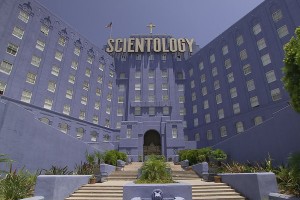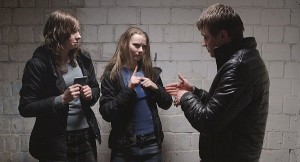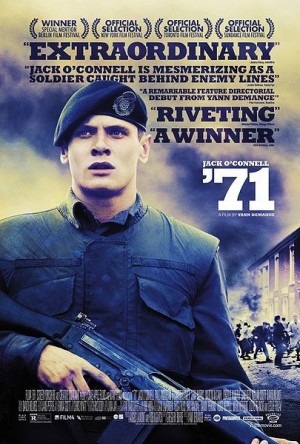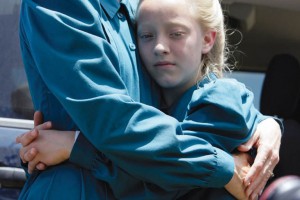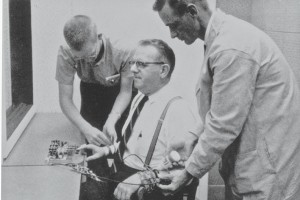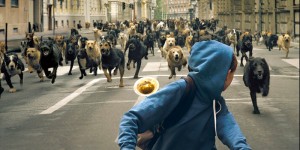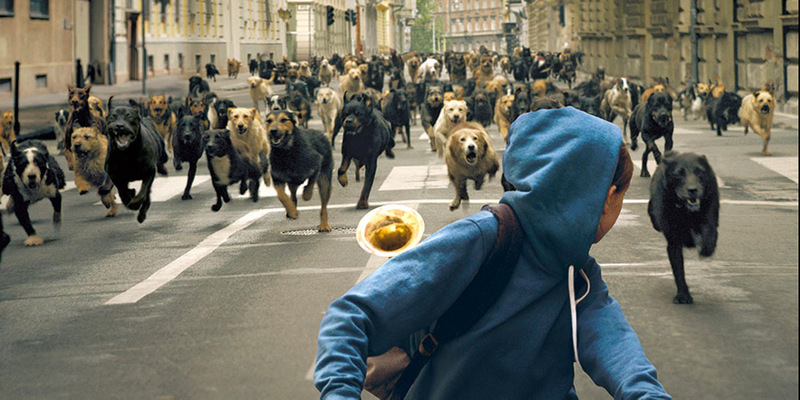
Dogs do have their day in White God.
Films to See at Sundance
As the Sundance Film Festival is about to open on Jan. 22, the film audience is declining. Making an independent film guarantees years of unpaid toil, and usually no return. Yet film school enrollments are soaring. Go figure. Faith-based media?
Sundance takes the temperature of film in the world beyond the studios every year. Yet if anything in the volatile entertainment landscape seems healthy, it is Park City Utah, which continues to absorb mountains of cash from visitors to the annual event. Be prepared for traffic jams, overpriced mediocre food (with a few exceptions) and prices that make Monaco look like a bargain.
Now for the films. In no particular order, here are some films to watch. Docs have always been my favorite at Sundance. More to come.
Going Clear: Scientology and the Prison of Belief (Director: Alex Gibney, USA)
If Tom Cruise believes in it, how pernicious can it be? Alex Gibney, who has looked recently at Julian Assange, Lance Armstrong and the plague of priest abuse in the Catholic Church, now scrutinizes the Church of Scientology, which tends to lock its own sights on celebrities and the rich. Premiering in Mormon Utah, that most religious of states, the doc is based on Lawrence Wright’s book-length study of a religion that takes an odder approach to spirituality than the deeply Catholic Mel Gibson, all within walking distance of some studios. Will the Scientologists arrive en masse to challenge what promises to be heresy? Will Tom Cruise jump on a sofa in anger? Many of us will be waiting for the “making of” documentary behind this doc to learn the story of how the film stayed out of court and made it to the screen.
Prophet’s Prey (Director: Amy Berg, USA, 90 minutes)
Amy Berg directed West of Memphis, the revision in a single film of the judicial persecution of the West Memphis Three for murders that put young teens who didn’t commit them on death row. She also directed another explosive doc, An Open Secret, about sex abuse of young male actors in Hollywood – which implicates so many bold-face names that it has about as much chance of being released as The Interview has of winning an Academy Award. This time Berg brings us Prophet’s Prey, a portrait of the Fundamentalist Church of Jesus Christ of the Latter Day Saints, whose pastor, Warren Jeffs, seemed to confuse ecclesiastical leadership with rape. Jeffs also found time to be a fashion policeman, mandating the dress and the hairstyles of his wives. He’s serving life in prison in Texas for sexual assault on two girls. Get ready for the fictional remake.
The Hunting Ground (Director: Kirby Dick, USA, 102 minutes)
It was only two years ago that Kirby Dick released The Invisible War, which exposed the long-tolerated practices of sexual abuse in the US military. The research was air-tight and names were named, yet few of the predators have been punished. Now Dick turns to rape on college campuses, picking up where Rolling Stone was pre-empted. Do college administrators protect their students or their institutions? Do athletes get special treatment from police? Virginia may have dodged a bullet, thanks to a story that Rolling Stone hadn’t fully vetted about a gang rape at a frat house. Dick won’t have that problem, given his rigorous research. And the preponderance of the evidence won’t be flattering for most schools. Expect him to blow the whistle on weak-willed enforcement. You can then expect some university administrators to resign.
Don Verdean (Director: Jared Hess, Screenwriters: Jared Hess, Jerusha Hess, USA)
Relics are good for you, supposedly, so a local church pastor hires a biblical archaeologist, Don Verdean, to find faith-promoting objects in the Holy Land. The archaeologist can’t find much, so he gets entrepreneurial in what has been described as “a comedy of faith and fraud.” Jared and Jerusha Hess were collaborators on Napoleon Dynamite and Nacho Libre. Jerusha is the director and co-writer of the underappreciated Austenland. Remember that the modern western exploration (and excavation, or looting) of sites in the Holy Land , which brought treasured objects back to museums and churches all over the US, was a religious movement. There’s plenty of unexplored territory in the comedy of the art world and the art market, not to mention the fraud. Add the Mormon element – the Hesses are church members – and shake well. I am looking forward to this one.
Experimenter (Director and screenwriter: Michael Almereyda, USA)
The Tingler is in the theater. We’ve all heard about the experiments in the 1960’s by a social psychologist who allowed people to use electric shock to compel behavior from the subjects of those experiments. “Ordinary” people were willing to impose pain on those subjects to ensure that orders were followed. Now comes a look back in time from Michael Almereyda about Stanley Milgrom, the academic who did just that in 1961, and was eventually demonized by the press and the public. All he did was show us what we might do, given the chance, or the order to do it. If the film sounds as if it comes from a time capsule, think of the debates on torture today and consider how technology has created an infinite number of new ways to deliver pain. The period film may also be a dystopian tale, pointing to new ways of governing. The stars are Peter Saarsgaard and Winona Ryder.
There are films at Sundance that I have seen already. These are some of the other ones that I can recommend.
Wild Tales (Director: Damian Szifron, Argentina, 120 minutes)
Think of the most heartwarming event, a wedding, and then create a brawl. My Big Violent Jewish Wedding. In Wild Tales, a couple’s marriage brings together two prominent Jewish families in Buenos Aires. But when the gallant husband walks away from his seat of honor, his wife looks across the room and sees him flirting with another women in a way that hints at something more than flirting. When she finds more damning evidence on his cell phone, it’s total war, and the elegant banquet hall becomes a field of battle. Forget the charming choreography of Silver Linings Playbook, this is frenzy, created for cinema with the same refinement (if that’s the word) that accomplished directors bring to their evocations of savagery on the battlefield. Wild Tales was a huge hit in festivals last year, and is an Oscar nominee. This will be one of the best films at Sundance.
Girlhood (Director: Celine Sciamma, France, 112 minutes)
A teenager from an African family with problems at home gets bad news – she won’t be able to continue in school and get the French baccalaureat, which is the key to getting anywhere in that society. She takes up with a gang of girls from the ‘hood, who steal, fight, and do whatever they want – in style. This hit from Cannes gives a realistic picture of life in the Parisian suburbs that the tourists (and lots of French) rarely see. What we see in Girlhood (Bande de Filles) is what Fox News erroneously stigmatized as the no-go zones of France today, where non-Muslims are not permitted. Fox was ignorantly wrong, as happens often enough, but Girlhood does remind you that immigrants at the bottom of the economic ladder can be constrained by family pressures and problems as they are by where they start out economically in society. There are echoes of everything from West Side Story to Mean Streets to Alphaville. Even the title in French, Bande de Filles, is an allusion to the Godard classic, Bande a Part, about an improvised gaggle of teenage thugs. Think of the film as some welcome context in the broader Charlie Hebdo tragedy.
The Tribe (Director: Myroslav Slaboshpytskiy, Ukraine, 127 minutes)
Imagine a group of thieves in Ukraine. That’s easy enough, except these young criminals are all deaf. The Tribe takes you to Ukraine today and back to the silent movie. There’s also a special performance element, the choreography of crime, as the gang maneuvers balletically across the screen. The Tribe is as remarkable as it is improbable. Also, the sign language frees a foreign film from the burden of being sub-titled in the US. Let’s see how far that gets this movie in the heartland. Bear in mind that this ode to criminality is also a motivational story about the disabled overcoming their physical challenges, albeit illegally. Who says that the disabled don’t have a God-given right to be criminals?
Unique is a word that is as overused at Sundance as it is elsewhere in the entertainment business. Here, it fits.
White God (Director: Kornél Mundruczó, Hungary/Sweden/Germany, 117 minutes)
This is a man-bites-dog film in its odd but logical element of surprise, but man does everything but that to man’s best friend in this nightmarish saga from Hungary. The difference in White God is that the servile canine species takes revenge. If you like dogs, you may see this film as its own species-equivalent of Inglorious Basterds. If you don’t like dogs, and especially if you fear them, this may be an apocalyptic arrival of the Antichrist. No word yet on whether any of the canine talent will be coming to Park City, or whether the dog warden will be present at the screening, or whether doggie treats will be for sale a the concession. The young audience will go after this nocturnal thriller like red meat. I thought the latest Planet of the Apes was generic backfill. White God surprised me.
’71 (Yann Demange, UK, 100 minutes)
Nothing could feel more like enemy territory to a British army recruit than a Catholic neighborhood in Londonderry in 1971. That’s where things explode in this feature debut by Yann Demange, a French director working in London. The first 15 minutes of ’71 are mostly silent, and incendiary in their tactile reality of the raw hatred for British troops in Northern Ireland. A young soldier gets separated from his unit after a riot that erupts with lightning spontaneity, and everyone there wants to kill the boy in a uniform with a rifle. This is the urban warfare that ravaged Ireland for years, usually seen from the side of the aggrieved Catholic minority. Here we witness the conflict from the point of view of a grunt on the sidewalk, or anywhere else he can hide. Demange, who made television before, has a sure feel for drama and timing. We all assumed that the war in Northern Ireland was over, or at least that the shooting had stopped. This takes you back to the worst of it.

